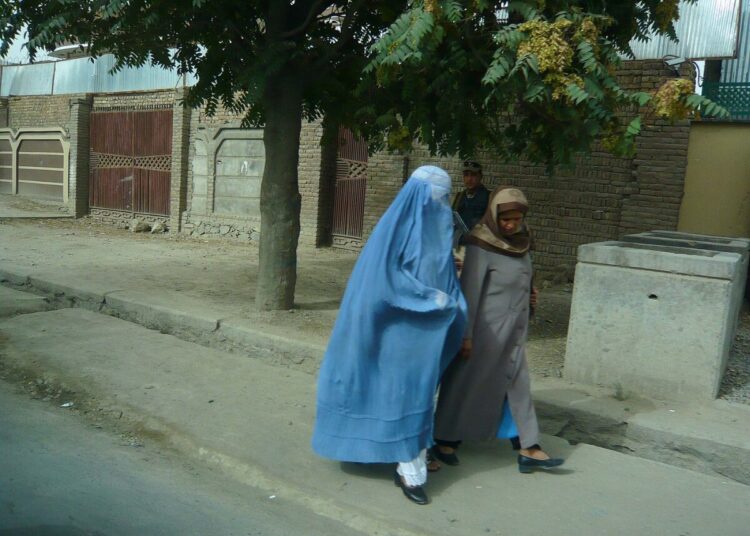Afghanistan’s Taliban rulers, Islamabad, have issued a series of restrictive new laws aimed at controlling the public behaviour and appearance of women, marking a disturbing regression in the regime’s efforts to impose its conservative interpretation of Islamic values.
Detailed in a 114-page document released on Wednesday by the Ministry for the Promotion of Virtue and Prevention of Vice, the new regulations include a ban on women’s voices and faces in public. Women are now required to cover their bodies entirely, including their faces, supposedly to “avoid temptation” and prevent others from being tempted, as dictated by the Taliban’s supreme leader, Hibatullah Akhundzada. The legislation mandates that clothing must not be thin, tight, or short, with non-compliance potentially leading to arrest.
The rules go further, prohibiting Afghan women from looking at men to whom they are not related by blood or marriage and, conversely, preventing men from looking at unrelated women. Women’s voices have also been silenced in public spaces, with new rules forbidding them from speaking loudly, singing, or reading aloud.

The new laws impact many facets of daily life in Afghanistan. Article 17 bans the publication of images of living beings, threatening the already fragile Afghan media landscape. Article 19 prohibits playing music, restricts solo travel for women, and mandates segregation between men and women who are not related, enforcing a stricter separation of the sexes across society.
Maulvi Abdul Ghafar Farooq, a spokesperson for the ministry, defended these measures, claiming they are necessary to promote virtue and eliminate vice in accordance with Islamic law. “Inshallah, we assure you that this Islamic law will greatly aid in fostering virtue and eradicating vice,” Farooq said, as if these restrictive measures are universally accepted and beneficial.
These developments follow the Taliban’s takeover of Afghanistan in 2021, after the withdrawal of US and coalition forces. Since then, the group has steadily eroded women’s rights and freedoms, using the Ministry for the Promotion of Virtue and Prevention of Vice as a tool for enforcing strict compliance through warnings and arrests.

International observers have expressed deep concern over these escalating restrictions. A recent United Nations report highlighted the growing climate of fear and intimidation in Afghanistan, fuelled by the Taliban’s oppressive measures. The report also noted the ministry’s expanding influence over various sectors of public life, including media regulation and efforts to combat drug addiction.
“Given the multiple issues outlined in the report, the position expressed by the de facto authorities that this oversight will be increasing and expanding gives cause for significant concern for all Afghans, especially women and girls,” said Fiona Frazer, head of the human rights service at the U.N. mission in Afghanistan.
Despite international condemnation and calls for the protection of human rights, particularly those of women and girls, the Taliban remains resolute, continuing to enforce its restrictive interpretation of Islamic law across Afghanistan. For many Afghan women, these new laws signify not just a loss of freedoms but a return to an oppressive past many hoped was left behind.












